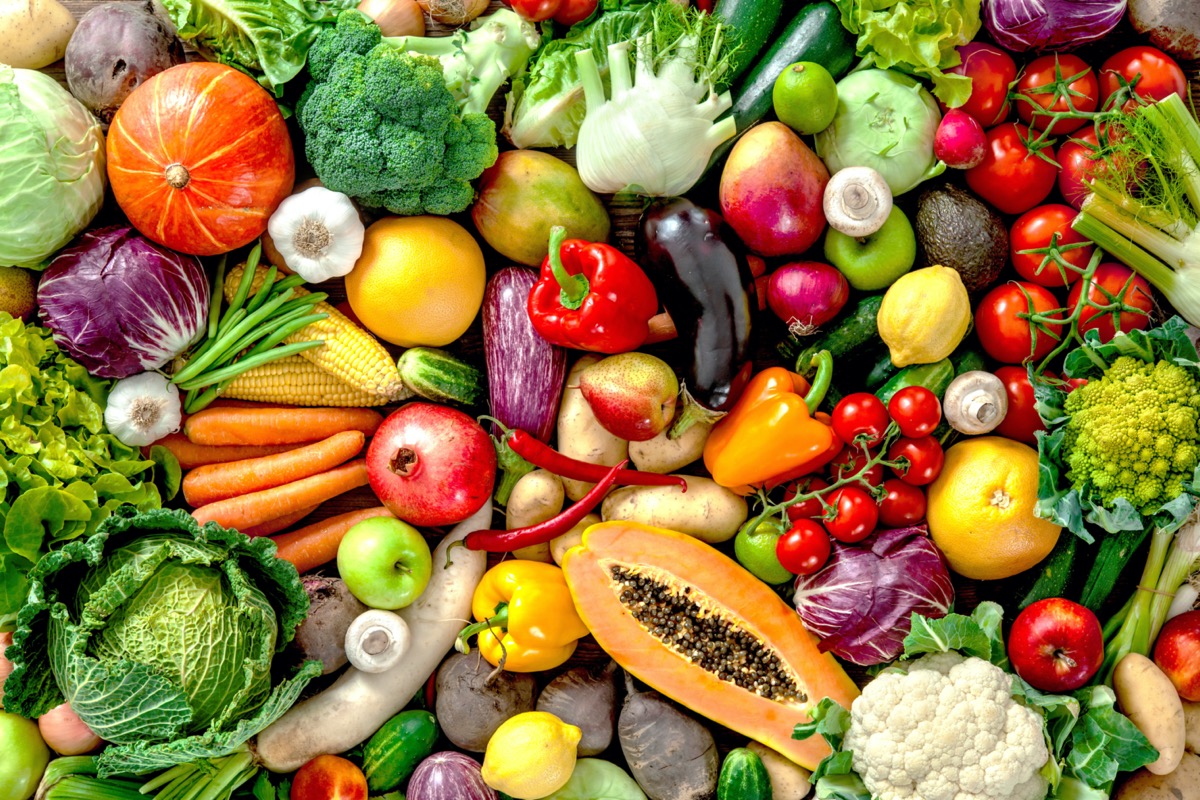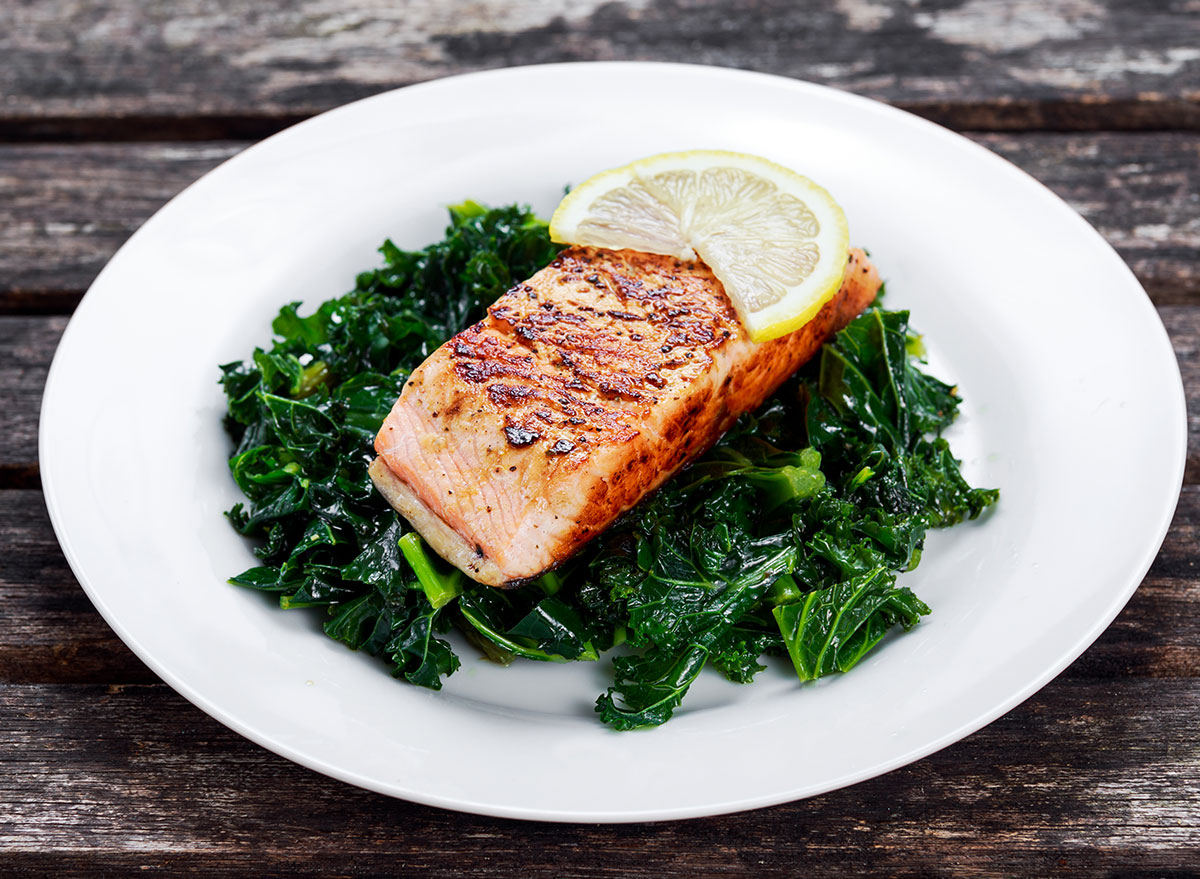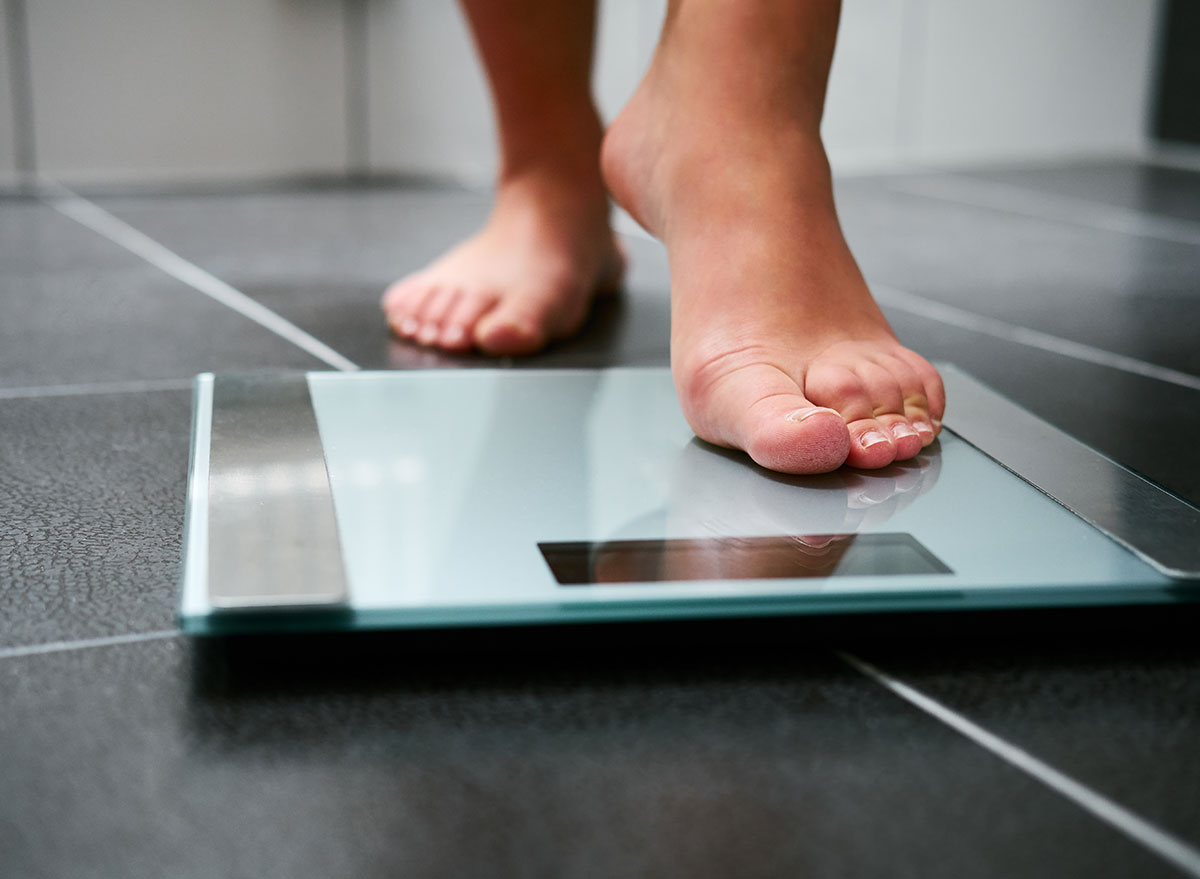The #1 way to lose weight according to doctors isn’t a mystery, but it is hard for many of us to sustain. For all we’ve learned about the science of losing weight—perhaps most importantly, that low-fat and super-low-calorie diets don’t work—more Americans are overweight or obese than ever. Further complicating matters: Recent studies have found that when we lose weight, our bodies actually try to hang on to fat. When pounds drop off rapidly, metabolism slows down in an attempt to keep things stable.
But successful weight loss is possible by shaking off the fads and committing to a few key concepts. Here’s what doctors say are the most effective ways to lose weight. Read on for the top 5 tips, counting down to #1—and to ensure your health and the health of others, don’t miss these 17 Most Weight-Loss Friendly Foods on the Planet.
All of us should exercise daily for health. The American Heart Association recommends 150 minutes of moderate intensity exercise—such as brisk walking—per week. But exercising for weight loss is tricky. You can’t out-exercise a bad diet, and exercise can make you hungry, which can lead to taking in more calories. However, building muscle via resistance exercise can boost your metabolism and aid in weight loss. So experts recommend exercising most days of the week with at least two strength-training workouts weekly. Just be realistic about its effects and make it part of a weight-loss regimen, not your whole plan.

Vegetables are high in fiber, which is extremely satiating. When you’re satisfied, you’ll eat less. “Non-starchy vegetables really fill you up,” says JoAnn Manson, MD, DrPH, professor of medicine at Harvard Medical School and chief of preventive medicine at Brigham & Women’s Hospital. These include broccoli, brussels sprouts, carrots, cauliflower, salad greens and mushrooms. (Starchy vegetables, like potatoes, peas and corn, may be less effective because starch is converted in the body to sugar.) Experts recommend allotting at least half your plate to vegetables at every meal.

To lose weight, doctors agree that it’s essential to consume less added sugar. Sugary drinks and foods cause blood sugar to spike and crash, causing cravings for more sugar and the consumption of more calories. Choose foods with as little added sugar as possible, and take sugar-laden drinks like soda off your menu ASAP. “Avoid all sugary drinks, as they provide ’empty calories’ that don’t fill you up. The sugar may uniquely act on the liver to produce belly fat,” Dean Schillinger, MD, chief of the University of California, San Francisco Division of General Internal Medicine, told Time magazine.

Most of the standard American diet—its apt acronym is SAD—involves processed foods that are stripped of nutrients and high in sugar and sodium. Generally, they’re not satisfying, which causes you to take in more calories. “A high-quality diet will almost automatically lead to better calorie control—you’re going to be eating foods with higher satiety,” says Manson. “A high-quality eating plan is something like the Mediterranean diet, which emphasizes fruits, vegetables, fish and olive oil, while being low in red meat, processed meats and processed foods.”

To achieve weight loss, the bottom line is that you need to expend more calories than you take in over an extended period of time. “The truth is, almost any diet will work [for weight loss] if it helps you take in fewer calories,” says Harvard Medical School. To burn calories, get daily exercise. To limit the calories you take in, be mindful of portion size, and ensure your meals emphasize whole foods like vegetables and whole grains to fill you up, while limiting processed foods and sugar.
That said, “when focusing on nutrition and the root cause of obesity, it’s important to look past the obvious ‘calories in vs calories out’ and focus on our relationships with food,” says Lorraine Kearney BASc, CDN, CEO New York City Nutrition and Certified Dietitian Nutritionist. “Some factors to take into consideration are gut health, stress levels, sleep schedule, medical conditions, food and taste preferences, financial resources, accessibility to food, and even self-esteem. Nutrition education (based on scientific evidence) is the best way to improve our relationships with food and achieve the long-term sustainable results they desire. Our relationship with food is driven by a biological need as well as a psychological need. The Biological need for food is related to the benefits nutrition has on our overall health as well as our energy levels. The psychological need for food is related to taste, texture, smell, cultural food and food cravings. If we do not tap into the relationship with food on the psychological level, the average person will not understand their food cravings and why they want to make changes to their diet.” So seek help if you need it, and now that you know what to do, get inspired by these 19 Weight Loss Foods That Really Work, Say Doctors.


























